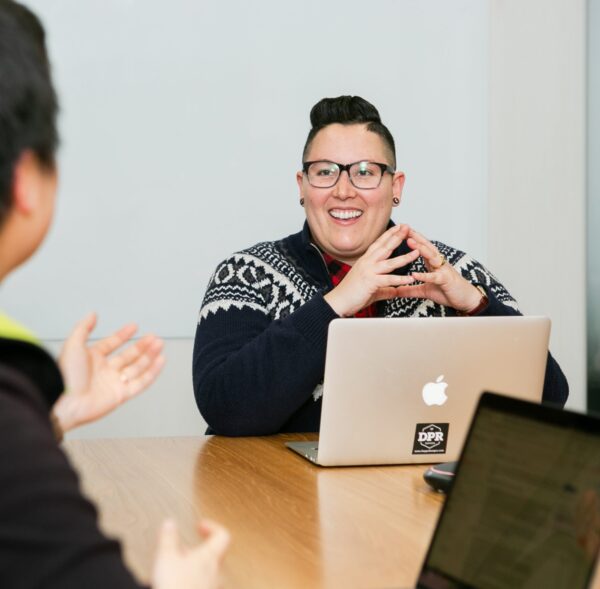6 phrases to avoid if you want the ECEC job of your dreams

While some things seem obvious to avoid in a job interview – like turning up late with no explanation, swearing during the interview, or failing to make an effort with presentation and personal hygiene – there are other which are more subtle but may be hurting your chances of landing the perfect early childhood education and care (ECEC) role.
In the piece below, we share some little known ‘red flag’ responses that can put you on the ‘do not call’ list. While some of these phrases seem harmless, they may be hurting your chances of success, leaving employers wondering if you’re the right fit for the job.
- “Happy Little Sunshines were the worst centre I ever worked for!”
It may be true that your experience in your last role was unpleasant. Your previous employers may have had issues within their service, team or organisation which made it uncomfortable for you to be there.
For all its wide open spaces, Australia, and the early childhood education and care sector specifically, is a small place! Interviewers have vast professional networks, and many people know one another.
You may be talking about a close personal connection of your interviewer, which is bound to be awkward for everyone. Even if your interviewer is unfamiliar with your previous employer, being so open and willing to outline all the challenges and experiences you had with a previous employer will leave the interviewer questioning your professional judgement, or apprehensive to hire you in case you talk badly about them too.
Instead of speaking badly about your previous employer, you could use this time to talk about what makes you excited to interview for this role – the culture, the people already working there, the philosophy of the service, or even why you’re excited to move up in the career ladder.
- “I just want a job, I love working with kids, and I need someone to give me a chance”
When you’re looking for a new position, it’s a given that you’re hoping to be successful, and if that job is in the ECEC sector, it’s also assumed that you like working with children – after all, if you didn’t, you probably wouldn’t be looking for a position working with them!
The key point of concern here is “I need someone to give me a chance”. This flags two things to an interviewer:
- You’ve not met anyone yet who is willing to take you on;
- There’s something about you which means you’re a long shot, and not someone who can come on board without some risk.
It’s important here to remember that interviews are a chance to sell yourself, and also to see if the organisation you’re speaking with is a good fit for you.
Instead of pleading for a chance, make sure the interviewer knows they would be mad not to hire you! Showcase your strengths, and be candid about how you will overcome any deficits.
Perhaps something like “Although this is my first permanent job in the ECEC sector, my placement experience was really positive, and I am really looking forward to sharing my love of nature play with the service here. Your bush kinder program is what drew me to apply.”
- “I’m committed to embedding pedagogical practice aligned with Reggio principles”
One of the worst things you can do in an ECEC interview is to come in and pepper the interviewer with ‘buzz words’ that you don’t fully understand in a bid to look more impressive.
Without a complete understanding of what the words you’re using mean, you run the risk of coming across as inauthentic, or using “big words” to be impressive.
Instead, you can demonstrate your professionalism by talking about how you work with children, and what drives your practice. It will be clear to the interviewer that you “know your stuff” from your capacity to embed philosophy and theory into your practice.
- “EYLF? Never heard of it”
While no interviewer expects any candidate to be perfect and to know everything, saying “I don’t know” or “I wouldn’t change nappies! No way!” can be damaging to your chances of being successful.
When you say “no” or “I don’t know” you give the impression that, not only do you not have the skills you need to be successful, you’re also unwilling to learn them.
Instead, you can answer the question with something that you have done which is similar. For example: “I haven’t worked with My Time, Our Place before, but I know that the framework is somewhat similar to the EYLF, and I’m happy to do some of my own research about how to work with it.”
You can also give examples of how you’ve tackled similar challenges in the past.
- “Montessori? Is that a type of pasta?”
One of the biggest mistakes that can be made at an interview is to go in with no prior knowledge of the educational philosophy which the service operates under. A lot of information is typically available on the service website about the philosophy, practices and policies which govern it.
Take some time before the interview to access this information, and become familiar with what these mean if you’re unfamiliar with them.
- “I expect to make $45 an hour”
No doubt salary and benefits are important, particularly in the current competitive ECEC recruitment market, however bringing up details of salaries and packaging on a first meeting is presumptuous, and can give a poor impression to the interviewer.
Instead, if pressed, you can speak in ‘windows’ of expectation. For example, you might say “the award rate is $X. In my current position I make $Y. For this job, I’d be needing $Y or more to make the move.”
If and when you make it to a higher round of interviews, you can then finalise the package you’re being offered.
For more information about interviewing in ECEC, please see here. This piece was based on similar work from Glassdoor. Access this content here.
Popular

Policy
Quality
Practice
Provider
Research
Workforce
ECEC services to close early for mandatory child safety training under national reforms
2025-12-01 07:10:09
by Fiona Alston

Quality
Policy
Practice
Provider
Workforce
Growth restrictions and enhanced oversight imposed on Affinity Education Group in NSW
2025-12-01 07:30:29
by Fiona Alston

Events News
Provider
The Sector launches 2026 edition of ECEC Owners and Operators Forum
2025-12-02 21:52:18
by Jason Roberts
















